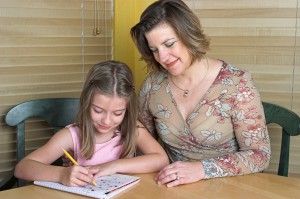Receive your FREE Parenting Advice through this blog. Simply ask Bob Lancer your question and receive his Lancer’s Answer in this blog.
Observing how your child’s friends behave is an important part of responsible parenting, because children become like those they spend time with.
Notice how your child behaves after spending time with kids
who behave wildly. Your child will behave more wildly.

You can observe your child making facial grimaces that cause her to look like her most recent playmates
It is a “law of child development” that the child’s personality reflects the outstanding personality traits of:
- The children that she spends the most time with and
- Those that she has most recently spent time with.
The child who demonstrates a disrespectful attitude is leading your child into a disrespectful attitude.
You can observe your child making facial grimaces that cause her to look like her most recent playmates.
What makes it hard for you to prohibit your child
from associating with troublesome children?
Share your thoughts, comments and questions about this topic in this blog.
Parenting your children becomes easier when you limit how much time your child spends with children who display behavior problems that you do not want replicated in your own child.
The younger your child, the more deep and lasting the influence
of other children’s behavior upon him.
But whatever your child’s age, by being selective regarding whom you permit your child to associate with you can protect your child from adopting problem behaviors displayed by other children.
Here’s a parenting children tip for diminishing the
amount of time your child spends with children
whose influence you don’t care for:
When you observe your child behaving poorly after some time with a playmate, warn, “If you continue behaving this way I will not permit you to play with that child tomorrow.” Follow that up with the simple explanation: “I’m doing this because it seems that child’s influence causes you to behave poorly.”
This will either cause your child to demonstrate adequate self-control, or, if you have to follow through, it will protect your child from negative child development.
It’s usually hardest to establish playmate boundaries
when it involves a relative.
It’s not easy to disallow time spent with a cousin who acts out in disturbing ways. But when it comes to parenting, our own children are our highest priority.
Receive your FREE Parenting Advice through this blog. Simply ask Bob Lancer your question and receive his Lancer’s Answer in this blog.





 button.
button. 




























